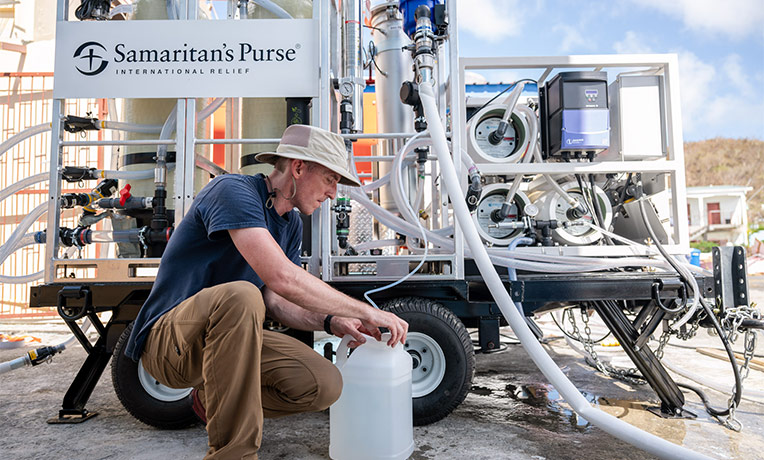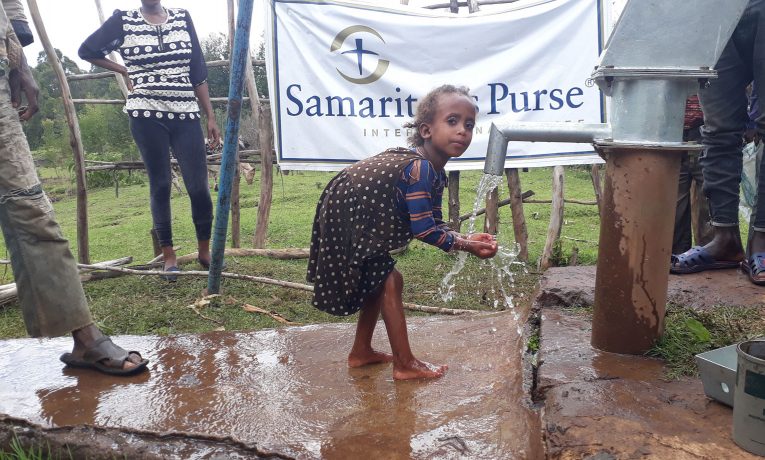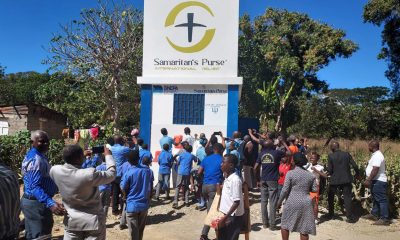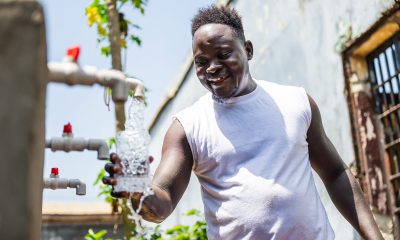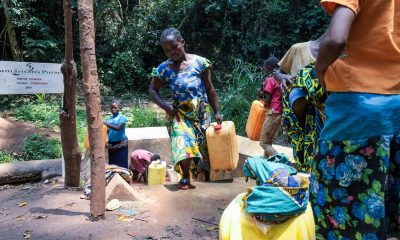The need for clean water, sanitation, and hygiene are critical as Ethiopia faces the spread of COVID-19. Samaritan’s Purse is helping in Jesus’ Name.
In the Korah community on the southwest outskirts of Ethiopia’s capital Addis Ababa, a livable wage is hard to come by. Residents pick through garbage to find plastic bottles or scraps of metal—or anything else of value—to sell. Begging and prostitution are common. This is how many in Korah put food on the table.
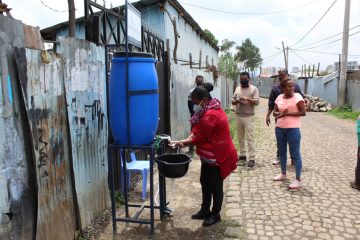
We provided handwashing stations for residents of the Korah community.
Clean water is also scarce in Korah.
This is why Samaritan’s Purse recently started Water, Sanitation, and Hygiene (WASH) projects in Korah, and we are seeing God work mightily through local organizations and churches who have embraced the people and are sharing with them the eternal hope found only in Jesus Christ.
Our work with these local partners has become even more vital to the community as COVID-19 has increased hardships for these hurting people.
Recently we helped provide them with access to better sanitation and hygiene. We gave families large containers for water storage in their homes, and we installed water reservoirs and touchless hand-washing stations at Hope for Korah, a local partner that runs a medical clinic, school, and elderly care center on site.
Additionally, we distributed essential hygiene items such hand sanitizer, detergent, rubber boots, and more than 800 hygiene kits.
Lemi Muleta, program health officer for Hope for Korah, said coronavirus-related restrictions have kept children away from the Hope for Korah school, which adds to the difficulties suffered by families in the community.
“Due to school closures, children are now missing out on school meals,” he said. “Most of these children were from poor families and depend on the daily meals they receive at school.”
As our teams work in Jesus’ Name to provide the Korah community with access to clean water and better hygiene and sanitation, we pray the children can return to normal life and, perhaps, to the classroom.
“The need is vast in Korah,” said Lemi. “Since the pandemic outbreak many have lost their income and are striving to survive. We are grateful for the work of Samaritan’s Purse as we work to reach out with hope to the Korah community during this pandemic crisis.”
Clean Water and Real Hope
Our efforts to provide clean water in Ethiopia dates back decades to the late 1980s drought and famine that threatened the lives of millions of Ethiopians. Some of the first freshwater wells ever constructed by Samaritan’s Purse were established in regions throughout the east African country.
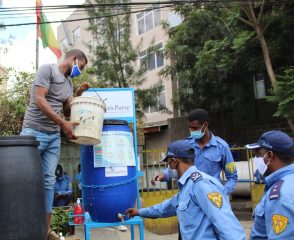
Police in Addis Ababa now have better access to handwashing stations provided by Samaritan’s Purse to help officers prevent the spread of disease.
Since our Ethiopia field office opened in 2019, our WASH teams have been busy yet again re-establishing wells and water points and assisting rural areas with WASH equipment and training. The COVID-19 crisis has stepped up the urgency of our WASH work in the country.
In addition to the many rural areas we serve, growing needs continue to emerge in the capital. The Korah community is just one of many areas in Addis Ababa and beyond where access to clean water, sanitation, and hygiene have been critical during the COVID-19 crisis.
Earlier this year, medical professionals were scrambling to prepare for an influx of patients and quarantined residents. A shortage of basic necessities, such as working water taps for washing hands or equipment for proper waste disposal, would have led to a devastating effect as medical centers would be vulnerable to spread of the disease.
Dr. Halima Kemal, medical director for the Basha Wolde Chelot Quarantine Center in Addis Ababa, said providing those essentials without the help of Samaritan’s Purse would have taken too long as COVID-19 cases rapidly increased in the country. This is why he called on our WASH teams.
“As medical director the main responsibility of providing water and sanitary facilities relied on me,” said Dr. Kemal.
At the quarantine center we provided clean and safe running water by placing water taps in strategic locations throughout the building, and this gave staff and patients access to separate hand-washing areas.
This cut down on possible cross contamination, as did a chute and waste bins that we provided for disposing of medical waste from treatment areas. We also installed much-needed additional toilets and sinks throughout the facility. We also provided gloves, soap, masks, and personal protective equipment (PPE).
“I am thankful for the support of Samaritan’s Purse,” Dr. Kemal said. “I thank Samaritan’s Purse for making a timely contribution and sharing my burden. Now both our staff and quarantined people can freely wash our hands and protect ourselves from the virus.”
In a country where our water, sanitation, and hygiene efforts have typically concentrated in rural areas, the COVID-19 crisis has also created these critical needs in the country’s capital. Samaritan’s Purse Ethiopia has been blessed with the opportunity to meet some of these needs in surprising ways throughout the country.
At the Addis Ababa police precinct we supplied officers with cleaning supplies, hand sanitizer, cloth face masks, and a hand-washing station fed by a 3,000-liter water tanker. For dozens of South Sudanese refugee families we’ve provided hygiene kits and health and hygiene training. In dozens of communities throughout Ethiopia, we’ve provided access to clean water, health and hygiene training and equipment.
“As a newly established country office, we’ve looked for ways to serve our communities,” said Melody Moshkowski, Samaritan’s Purse Ethiopia Country Director. “Having the opportunity to show the love of Jesus to our neighbors during this crisis has been a blessing to us and, we hope, to others.”
